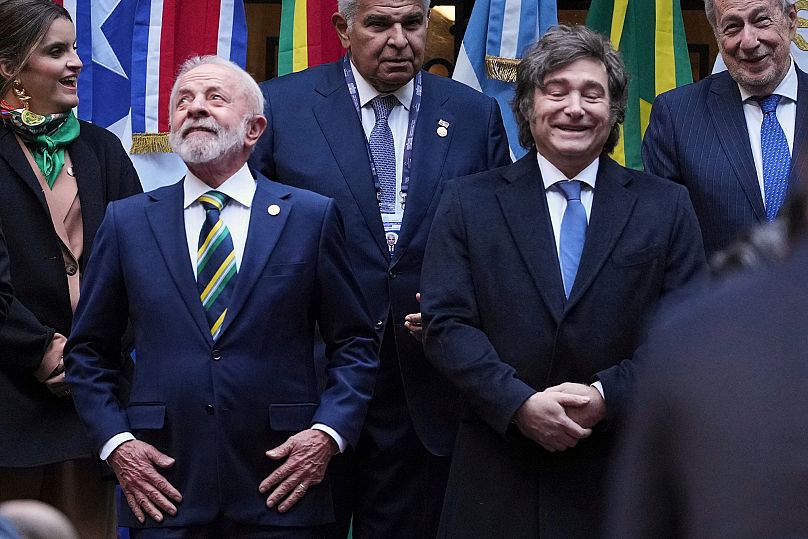Inserted into a parliamentary resolution, a few lines welcoming the Mercosur agreement were rejected by a majority of European lawmakers on Wednesday.
It’s a narrow win — but a win nonetheless — for the opponents of the controversial trade agreement reached with the Mercosur countries in December 2024.
 ADVERTISEMENT
ADVERTISEMENT
 ADVERTISEMENT
ADVERTISEMENT
A show of hands from European lawmakers on Wednesday saw 269 of them reject a paragraph of a resolution on the EU’s political strategy for Latin America that welcomed the conclusion of the Mercosur agreement — offering a preview of the showdown taking shape in the European Parliament over the controversial trade deal.
The Strasbourg vote was decided by just 10 votes, as 259 other MEPs voted in favour, reflecting a divided hemicycle over this controversial agreement.
“The European Parliament is once again expressing its scepticism about the trade agreement with Mercosur,” French MEP Pascal Canfin (Renew) wrote in a post on LinkedIn.
“The political signal is very clear: there are more MEPs who have profound doubts about the merits of this agreement than MEPs who want it adopted immediately.”
The European Commission, which had been at the helm during more than twenty years of negotiations for this agreement, submitted it for ratification to the Council and for its consent to the European Parliament on 3 September.
However, it remains uncertain whether the final step for the EU to conclude the agreement will proceed smoothly.
The deal, which liberalises trade between Mercosur countries — Argentina, Brazil, Paraguay and Uruguay — and the EU, reduces tariffs on many products, including some agricultural goods, raising concerns among European farmers about facing unfair competition from Latin American producers.
'We will continue fighting'
In the Parliament, a group of lawmakers is preparing to submit a resolution to their colleagues calling for the EU Court of Justice to be seized to suspend the deal's approval.
Opponents of the agreement also fear that Mercosur countries will not comply with European phytosanitary and environmental standards.
The agreement “abandons agriculture and livestock, harms the environment, fuels deforestation, rolls out the red carpet for extractive multinationals,” Spanish MEP Irene Montero (The Left), who prompted the vote on Wednesday, told Euronews.
“We will continue fighting to ensure that this agreement is not ratified and to stop the danger it poses to the environment and our primary sector.”
Supporters of the deal argue, on the other hand, that this text — which creates a free trade area of 700 million people — is necessary in the new global trade context to face Chinese competition in Mercosur countries and diversify trading partners, especially as the US is raising tariff barriers around its market.
The part of the resolution that was rejected welcomed the conclusion of the deal's negotiations, highlighting “the fact that the agreement would be a real game changer for the relationship between the two regions."
The deal "would be the largest trade agreement ever signed by the EU in terms of population, covering more than 700 million citizens, and the most significant in terms of its economic impact,” the resolution emphasised.
The resolution also stressed the “geopolitical value” of the deal, “as an essential tool for advancing the EU’s strategic interests in the current international context.”
The plenary vote on the Mercosur agreement itself has not yet been scheduled. A source familiar with the matter told Euronews that the European Parliament’s administration hopes it will be on the MEPs’ agenda by the end of the year.


















